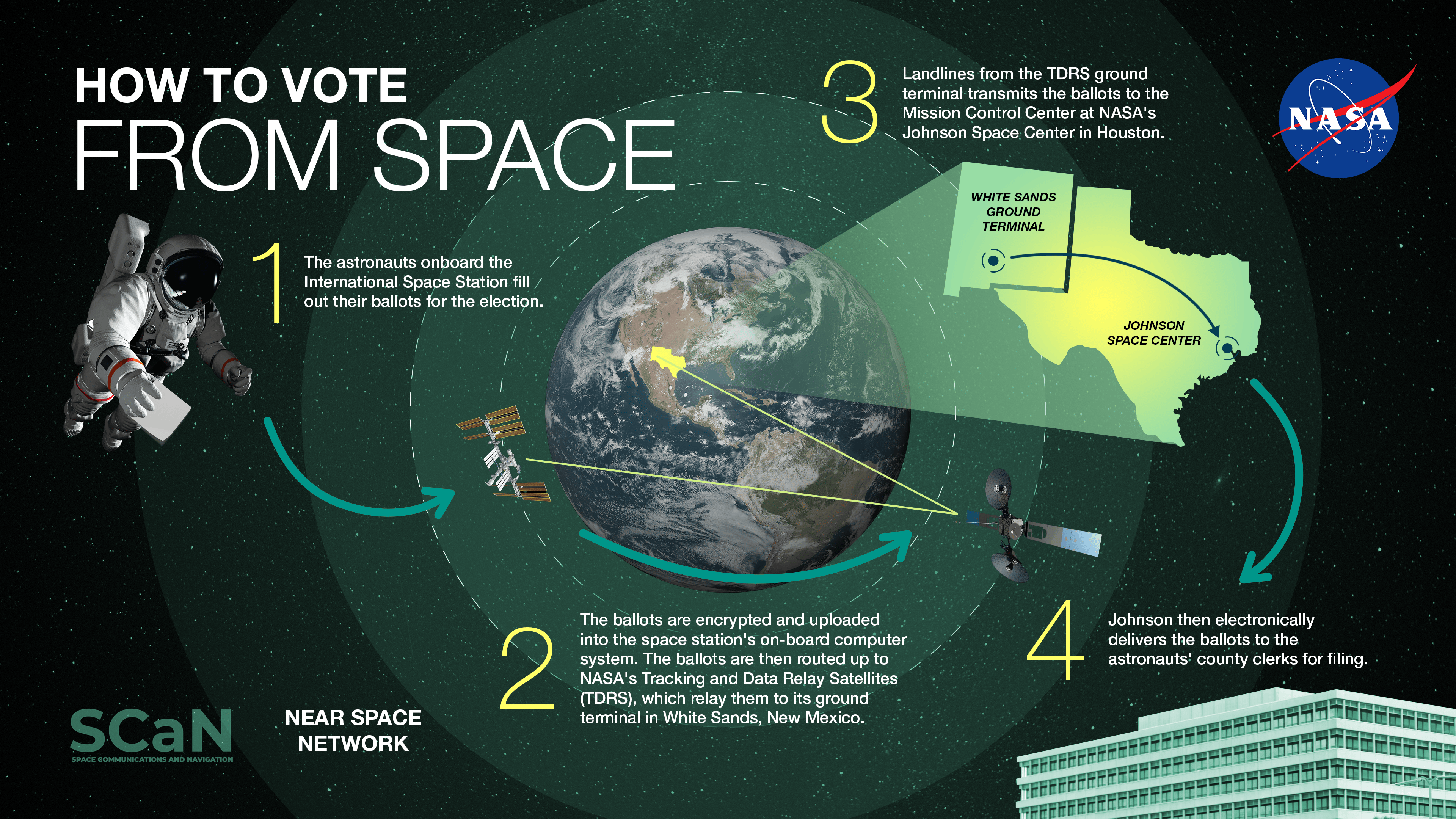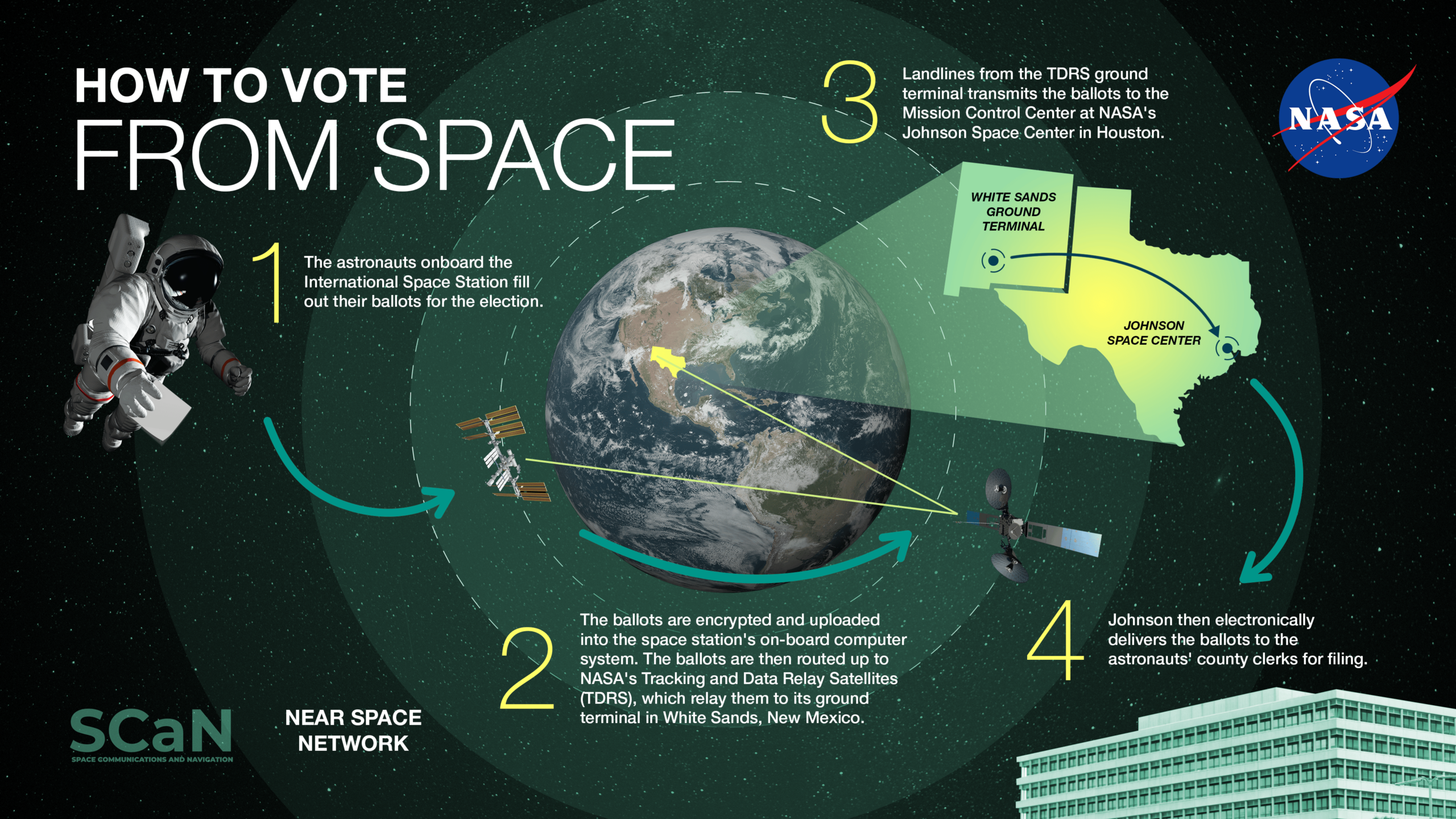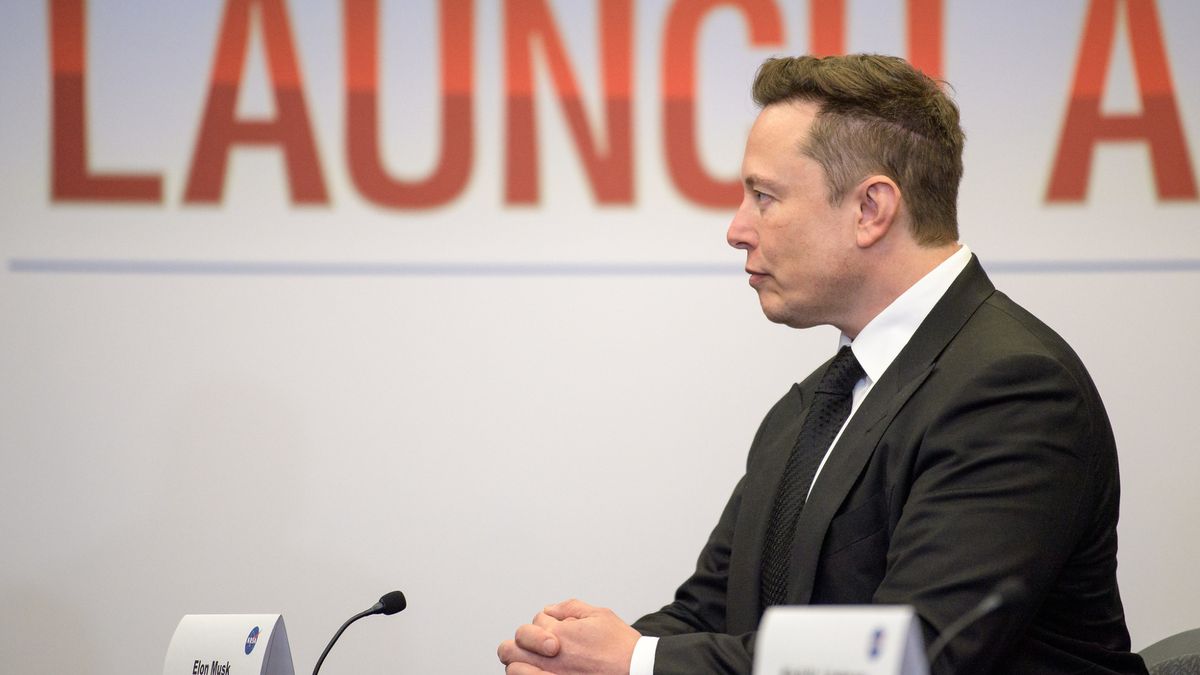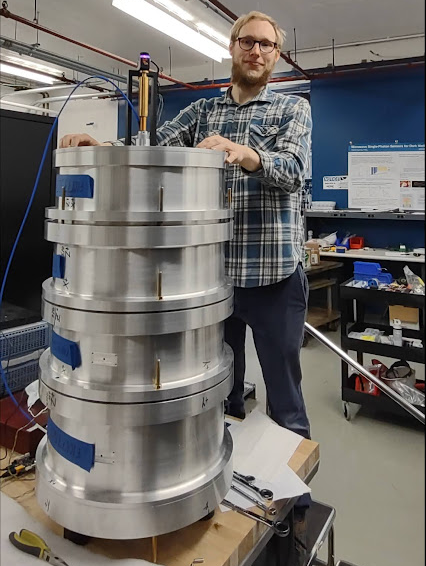Election day in the United States is Tuesday, Nov. 5, and even American astronauts living in space are taking the time to fulfill their civic duty and cast their votes.
There are four Americans currently aboard the Internationals Space Station (ISS): SpaceX Crew-9 NASA astronauts Don Pettit, Nick Hague, Butch Wilmore and Suni Williams, and each has had the opportunity to add their voice to the more than 160 million other Americans able to participate in tomorrow’s election.
“It’s a very important duty that we have as citizens,” Williams said during a call with reporters in September, adding that getting to vote from space, “is pretty cool.”
“NASA makes it very easy for us to [be included in elections], so we’re excited about that opportunity,” Wilmore said on the call, revealing he had just requested an absentee ballot that same day.
Neither Williams and Wilmore expected to be voting absentee when they arrived to the ISS. The duo launched aboard the Boeing Starliner Crew Flight Test on June 5, for a mission that was only supposed to last about a week.
Related: How astronauts vote from space
Unfortunately, Starliner experienced a series of malfunctioning thrusters on its way to the ISS, where it remained docked for three months while Boeing and NASA conducted ground tests to better understand what went wrong. Out of an abundance of caution, NASA ultimately decided to return Starliner to Earth uncrewed, leaving Williams and Wilmore without their original ride home.
By the time Starliner undocked in early September, Williams and Wilmore were already integrated into the orbital laboratory’s duty schedule, and were officially assigned as members of SpaceX’s Crew-9 when it arrived a couple weeks later. And, despite their extra-long stay on orbit and all the maintenance and research responsibilities that come with living aboard the ISS, Williams and Wilmore are still managing to vote in the 2024 election. (So, you really have no excuse not to vote tomorrow.)
Unlike their Starliner-turned-Crew-9 companions, Hague and Pettit knew they would be in space during election day, and very likely filled out Federal Postcard Applications (FPCAs) before launching to the station, the same way NASA astronaut Kate Rubins did in 2022. FPCAs are like absentee ballots for U.S. citizens and military personnel overseas, or, in this case, in space.
NASA’s Johnson Space Center in Houston, Texas, is home to the space agency’s astronaut training program. As a result, most astronauts live in Texas, and therefore claim the Lone Star State as their residency on their voter registration, according to NASA. Because of this, the Texas Legislature passed a bill in 1997 specifically allowing astronauts to cast ballots from orbit. Later that year, while aboard Russia’s Mir Space Station, NASA astronaut David Wolf became the first American to vote from space.
NASA also credits the Space Communication and Navigation (SCaN) Program for facilitating astronauts’ off-planet polling place. In a blog post last month, NASA traced the route an astronaut’s ballot takes after being cast aboard the ISS:

“After an astronaut fills out an electronic ballot aboard the orbiting laboratory, the document flows through NASA’s Tracking and Data Relay Satellite System to a ground antenna at the agency’s White Sands Test Facility in Las Cruces, New Mexico,” it says.
From New Mexico, NASA transfers the ballot to the Mission Control Center at NASA Johnson and then on to the county clerk responsible for casting the ballot. To preserve the vote’s integrity, the ballot is encrypted and accessible only by the astronaut and the clerk.”
If you need help with registering to vote, finding your local polling place or any other vote-related question, head to USA.gov for more information.



